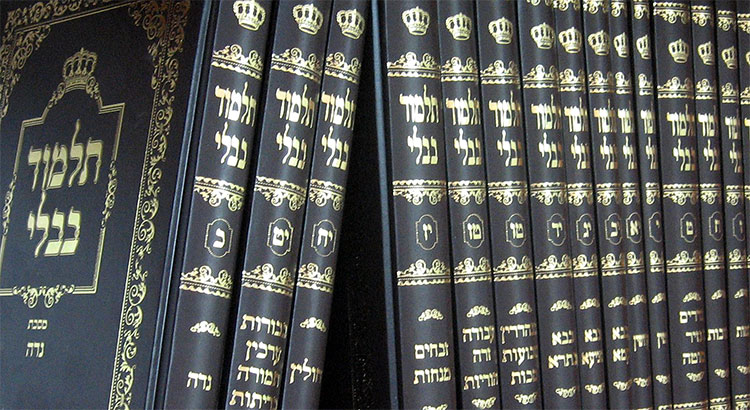Betsy Frank is UHC para-rabbinic fellow and president.
If you’re looking for a sustaining project you can tackle one day at a time, I’d like to suggest joining me for Daf Yomi, a culturally enriching scholarly exercise where Jews all over the world study a page of Talmud a day.
January 5, 2020, began the latest 7 1/2-year cycle of Daf Yomi, which myjewishlearning.com describes as “the longest-running Jewish book club“.
Rabbi Meir Shapiro founded the movement in 1923 in Poland. The Talmud’s 37 volumes take 7 1/2 years to read on a page-a-day schedule, placing us in the 14th repeating cycle of Daf Yomi.
I’m up for the challenge. At my age, studying for seven years certainly gives me incentive to stay healthy!
Sign up for your Daily Dose of Talmud
Myjewishlearning.com provides Daf Yomi highlights and a bit of a commentary in a Daily Dose of Talmud email. The email links to the Daily Daf on seforia.com, which also offers a Daf Yomi app.
MJL also moderates a busy Daf Yomi Facebook group, where posts often include links to other Daf Yomi sites.
The text is so vast and rich that now I understand how scholars can devote their entire lives to studying Talmud.
The Daf is presented in English, with the original Hebrew embedded. The text is so vast and rich that now I understand how scholars can devote their entire lives to studying Talmud.
I must admit I don’t have the time to fully delve into each day’s page. Still, I keep up and never fall more than a day or two behind. And the process is a rewarding one.
Why should I engage in this exercise?
You might ask, “why would I engage in this exercise? Isn’t the Talmud an archaic religious text with little meaning for today’s Reform Jews?”
If you believe this, you might be wrong! Daily readings range from the curious to the utilitarian, and are always interesting.
The Talmud discusses such topics as how to bless our food and in what order we bless our food; how to save face; and who should enter a door first.
The Talmud discusses such topics as how to bless our food and in what order we bless our food; how to save face; and who should enter a door first.
But the Talmud also discusses practical items such as rules for bathroom hygiene and why we should never store uncooked meat above our bread (a rule our Vigo County Health Department even today strictly enforces for restaurants).
Sometimes the answer is, ‘Who knows?’
The text may offer multiple opinions and sometimes the Talmud leaves us frustrated by expressing that the rule, or halakhah, is unclear.
But nevertheless, the Talmud shows us how our sages approached important issues and rules for living, all to get closer to the Divine.
In other words, these rules serve a purpose.
I encourage_all of you to give Daf Yomi a try. I know you won’t agree with all that you read and you many get lost in the arguments at times.
However, you will be surprised at expressions you recognize in our liturgy and modern Jewish life.
Happy reading!
Shalom,
Betsy Frank

Thank you for pointing me to this (Daily Dose of Talmud), Betsy! I’ve never read anything regarding Talmud outside of Sunday School because it seemed so irrelevant to us Reform Jews. However, this is absolutely fascinating reading to me!
Thanks for your comment, Steve. We’re glad to help expand your reading list, through Daily Dose of Talmud and Betsy’s column!